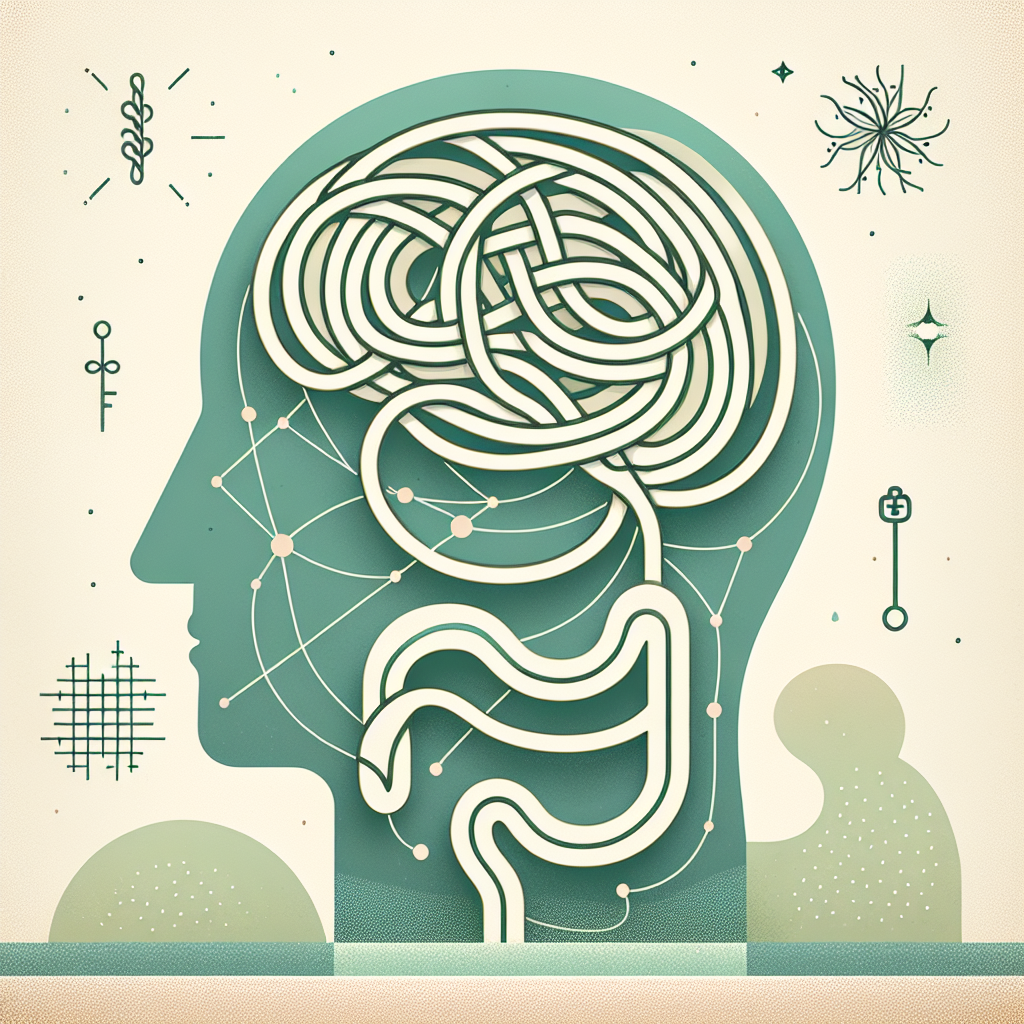### Unlocking the Mysteries of the Gut-Brain Connection: How Gut Health Influences Mental Wellness
Our body is a complex network of systems coexisting and interacting constantly, carrying out various roles that sustain our overall well-being. Among these, two critical systems- the gut and brain have been found to be closely tied in surprising ways. This magical linkage, often referred to as the gut-brain axis, is an area eminent in the field of health and wellness research.
Let’s delve into the burgeoning field of gut-brain connection and its profound implications on mental health.
—
#### The Concept of Gut-Brain Axis
The gut-brain axis refers to the bidirectional communication route between the central nervous system (brain and spinal cord) and the enteric nervous system (the complex system managing the gastrointestinal tract). This communication takes place via neural connections, hormones, and the immune system, but an often-overlooked player in this process is the gut microbiome.
—
#### Role of Microbiome in Gut-Brain Axis
Our gut is the humble home for trillions of microbes (bacteria, fungi, and viruses), collectively referred to as the microbiome. These microscopic organisms play a critical role in our metabolic function, immune system, and nutrient absorption. However, contemporary research reveals they also hold sway over our emotions, stress levels, and cognitive faculties.
Beneficial gut bacteria produce neurotransmitters like serotonin and dopamine, which regulate feelings of happiness and motivation, respectively. A disproportionately populated harmful bacteria or an imbalance in gut flora might disrupt this neurotransmitter production, leading to mood disorders.
—
#### Gut Health and Mental Wellness
Several studies have indicated a strong correlation between gut health and mental health disorders such as depression, anxiety, and autism. In particular, the study published in the ‘Nature Microbiology’ journal reported people with depression having lower levels of certain types of gut bacteria. Another research published in the ‘BMJ Open journal’ showed a significant decrease in anxiety symptoms among individuals after dietary interventions for gut health.
Probiotics and Prebiotics, known for their gut health benefits, are also found to have promising effects on mental health. They help in restoring the balance of gut microbiota and hence play a key role in maintaining mental wellness.
—
#### The Way Forward
With the burgeoning body of research, mental health treatment protocols might significantly evolve by incorporating diet plans that better gut health, alongside traditional interventions. Behavioral and cognitive therapies might need to pay heed to the critical role of nutrition in mental health.
The concept of ‘Psychobiotics’ – beneficial bacteria (or probiotics) known to positively influence the mind, is gaining popularity among researchers. These Psychobiotics might potentially become an integral part of future therapies for mental health disorders.
—
#### Bottom Line
The gut-brain axis and its relation to mental health is indeed a groundbreaking stride in health sciences, enabling a more holistic and multidimensional perspective of human health. However, the gut-brain connection is still a growing field. While the prospects seem promising, more research is needed before specific recommendations can be made.
Remember, maintaining a balanced diet rich in fiber and fermented foods can support healthy gut microbiota and contribute to better mental wellness. But if you struggle with mental health symptoms, always consult with a healthcare provider. Because as entwined as they may be, gut health is only one element of your overall mental health.
Let’s nurture our gut not only for a strong body but also for a sound mind, as we stride into an era where mental health is given as much importance as physical health.
Stay healthy, stay curious!
—
References:
1. Carabotti, M., Scirocco, A., Maselli, M. A., & Severi, C. (2015). The gut-brain axis: interactions between enteric microbiota, central and enteric nervous systems. Annals of gastroenterology, 28(2), 203–209.
2. Clapp, M., Aurora, N., Herrera, L., Bhatia, M., Wilen, E., & Wakefield, S. (2017). Gut microbiota’s effect on mental health: The gut-brain axis. Clinics and practice, 7(4), 987.
3. Sarkar, A., Lehto, S. M., Harty, S., Dinan, T. G., Cryan, J. F., & Burnet, P. W. J. (2020). Psychobiotics and the Manipulation of Bacteria–Gut–Brain Signals. Trends in neurosciences, 39(11), 763–781.
4. Valles-Colomer, M., Falony, G., Darzi, Y., Tigchelaar, E. F., Wang, J., Tito, R. Y., … & Joossens, M. (2019). The neuroactive potential of the human gut microbiota in quality of life and depression. Nature microbiology, 4(4), 623-632.
5. Huang, R., Wang, K., & Hu, J. (2016). Effect of Probiotics on Depression: A Systematic Review and Meta-Analysis of Randomized Controlled Trials. Nutrients, 8(8), 483.


